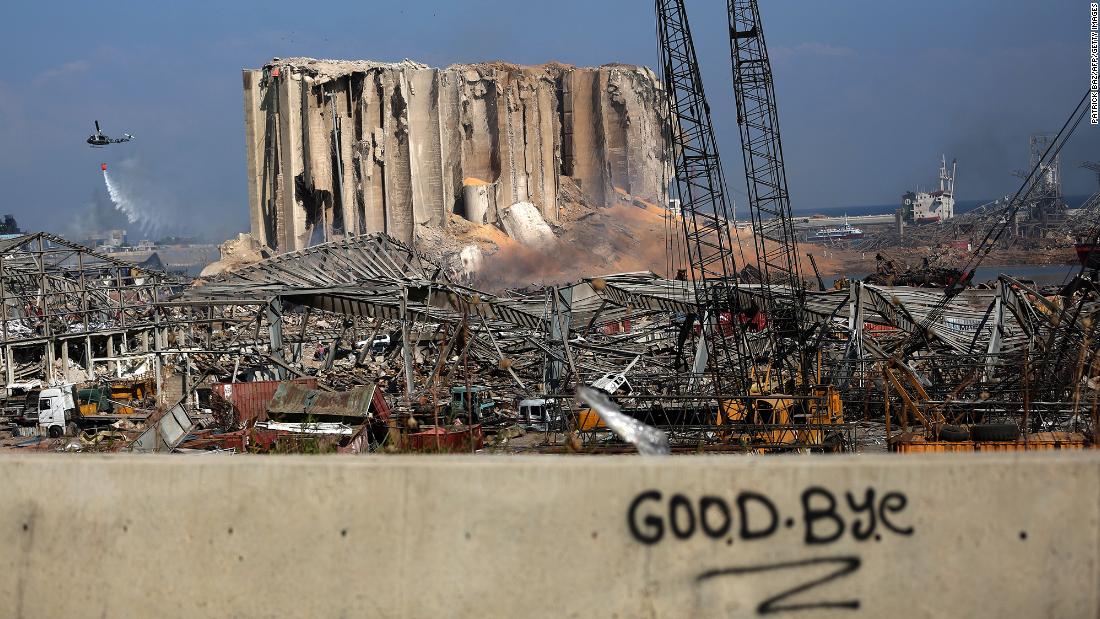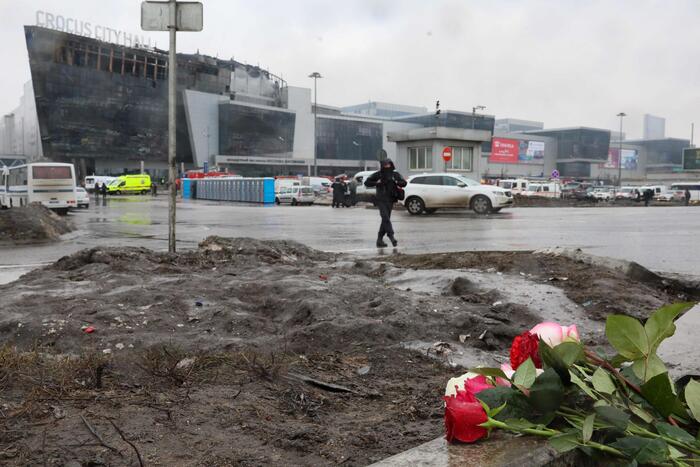The "Most Powerful Non-Nuclear Blast in History" 2:00
Editor's Note: Frida Ghitis, a former CNN correspondent and producer, is a world affairs columnist. She is a frequent CNN opinion contributor, contributing columnist for The Washington Post, and columnist for the World Politics Review. Follow her on Twitter @fridaghitis. The opinions expressed in this comment are specific to the author. Read more opinion at cnne.com/opinion
(CNN) - Sometimes, it seems that fate tries to demonstrate its limitless capacity for cruelty. When the skies over Beirut exploded on Tuesday, sending shock waves into Cyprus, 240 kilometers away in the Mediterranean, and devastating much of a city that was once known as the Paris of the Middle East, it seemed like one of those times.
But the endless tragedy that is Lebanon is not the result of the random events of fate.
The Lebanese government has blamed a large amount of poorly stored ammonium nitrate for the explosion that shook the city, killing at least 135 people, injuring more than 5,000 and destroying the capital's critical port, through which the Most of the goods that Lebanon needs, including food, enter the country. Some 300,000 people may have been left homeless.
Initial investigations of the catastrophe seem to show that it was the result of a confluence of ridiculously reckless practices and a nonexistent concern for safety, although we cannot be sure so soon. The Prime Minister has promised a full investigation.
The Lebanese people have long suffered as a result of the actions and behavior of corrupt and incompetent individuals; of politicians, businessmen and shadowy figures eager for power, and of geopolitical actors who have made the country their toy at the expense of good government.
- LOOK: Touching scene of a nurse carrying three newborn babies after explosion in Beirut
Everything that could go wrong in Lebanon came out. The explosion came amid an epic economic collapse and a global pandemic, with political factions fighting each other as the increasingly hungry people passed between despair and rage. (As a prominent television personality, Antoine El Hajj said: "The middle class has become poor and the poor have become destitute").
So it was not surprising that the blast immediately ignited a storm of speculation and suspicion. What and who caused the cataclysm, everyone wanted to know.
This is where the President of the United States, Donald Trump, entered who, frighteningly, almost casually, seemed to inject more fuel into the burning conspiracies, calling the explosion a "terrible attack", and then speculating that it was "a bomb of some kind «. Trump claimed he had heard it from "our great generals," but defense officials told CNN they did not know what he was talking about.
The only reason that Trump's carelessness did not trigger an even worse political explosion in a country full of intrigue may be that the world has come to know Trump as a ghost and a liar.
Still, the Lebanese did not ask for his help in initiating conspiracy conjectures, the volume of which on social media attests to the country's political whirlwind: the Lebanese are familiar with the factions and the actors and powers. Was it one of the usual suspects? The calamitous 15-year civil war that ended in 1990 made them familiar with political strife and evil patronage.
What exactly caused the explosion? Images of a mushroom cloud led some to conclude that "there is no doubt that it was an atomic bomb", although experts immediately noted that explosions of all kinds create mushroom clouds, and this certainly was NOT it was a nuclear weapon.
Lebanese authorities first blamed the fireworks stored in the port. But it seemed unlikely that firecrackers and flares could create an explosion of that magnitude. Then new facts began to appear and the banality of what could have caused the catastrophe began to emerge.
- MORE: Beirut: The Blast Was The Most Powerful Non-Nuclear In History, Experts Say
Stored at the port, in fact, was an enormous quantity of ammonium nitrate, the highly explosive mixture used by the 1995 Oklahoma City bombers, the authors of what was at that time the worst terrorist attack in the history of the United States. . Those bombers used two tons. The Beirut port contained 2,750 metric tons, more than a thousand times more, so much so that the Lebanese customs chief said he had sent six documents to the judiciary warning of the danger, urging that the explosives be removed.
The current understanding, through Lebanese officials, is that the ammonium nitrate reserve was ignited, although it is unclear what caused this, and the ensuing explosion swept large parts of the city.
If this is what happened, it was not terrorism or geopolitics, it was incompetence and negligence. But it is worth noting that incompetence and corruption in Lebanon are due in part to interference from other powers. Iran and Saudi Arabia have long held power competition in the Lebanese political arena. The country's system of government divides power by sectarian groups, between Sunnis, Shiites and Christians. Often backed by strangers, politicians and officials too often see their positions as a way to enrich themselves rather than work for Lebanon, creating unstable conditions in a fragile country.
- MORE: Emmanuel Macron arrives in Beirut and says he will send aid after explosion
The President and Prime Minister of Lebanon are reflecting the sadness and fury that now permeates what was once a glorious capital. Prime Minister Hassan Diab promised: "I will not rest until we find those responsible for what happened, I will hold them accountable and impose the maximum punishment."
President Michel Aoun promised "the most severe punishment."
Lebanon needs urgent and lasting aid, but even receiving external aid will be extraordinarily difficult given the political knots that are strangling the country. It is not fate that causes the tragedy of Lebanon. Perhaps the anger shared by this event can unite the Lebanese to push back the incompetent and greedy, the officials, politicians and external actors, who have kidnapped their country and created the conditions for the endless tragedy of the Lebanese people; it is a monumental task.
Beirut explosion




/cloudfront-eu-central-1.images.arcpublishing.com/prisa/PSGWZRRNLJCGPNU5VBLQXWUGC4.jpg)










